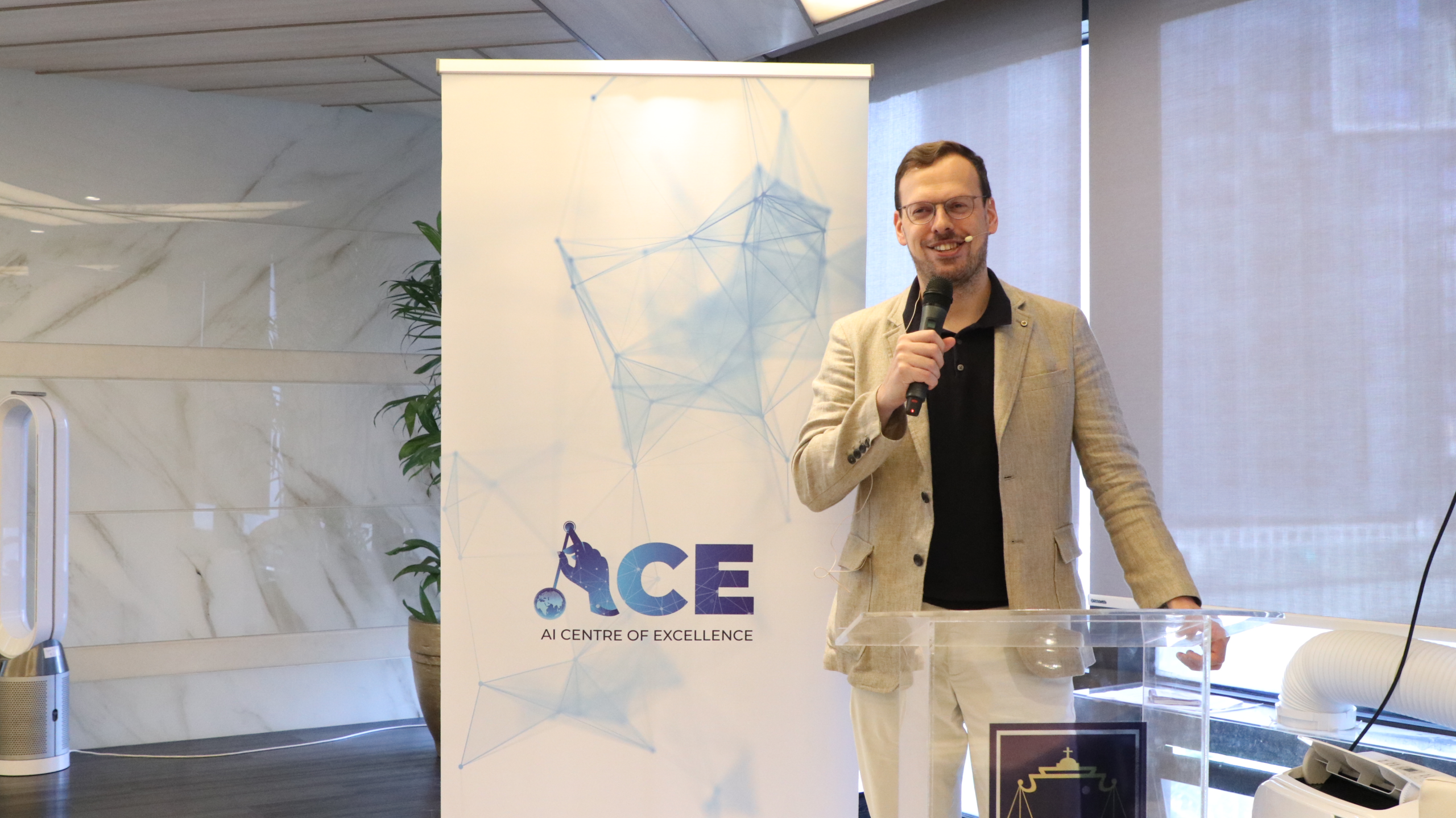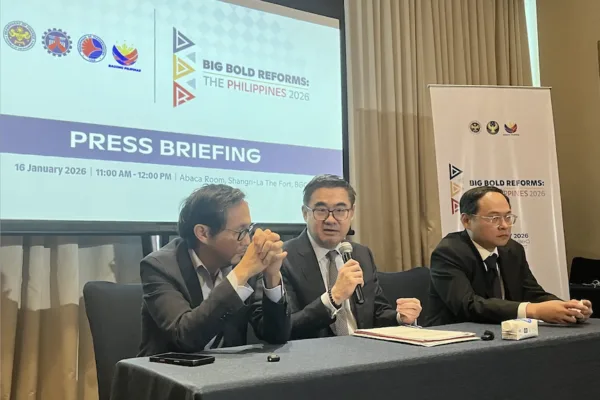by Leira Mananzan, Reporter
The AI Centre of Excellence (ACE) held its third Manila workshop on August 27, turning the spotlight on how artificial intelligence is shaping the future of marketing campaigns.

The event, AI Hacks for Smarter Marketing Campaigns, was held at the DivinaLaw Office in Makati City and drew over a hundred participants onsite and online, including professionals from the Philippines, Indonesia, Malaysia, Thailand, and Hong Kong.
ACE founder highlights barriers to adoption in ASEAN
In her welcome address, Ana Pista, APR, Founder and CEO of Ardent Communications and co-founder of ACE, emphasized that while interest in artificial intelligence is growing rapidly, Southeast Asian marketers continue to face challenges in fully integrating the technology.
She identified three areas where progress remains uneven: the availability of reliable datasets, the readiness of infrastructure to support advanced tools, and the skills gap that prevents many professionals from applying this new tool effectively.

Pista also underscored that AI adoption cannot be separated from responsibility. She noted that as organizations rely more on customer data, concerns such as privacy and algorithmic bias must be addressed alongside enthusiasm for new tools.
According to her, excitement alone is not enough; what the industry needs is readiness, stronger skills, and ethical frameworks to ensure that adoption is both responsible and sustainable.
Rob van Alphen brings global perspective on AI in marketing
The workshop’s keynote was delivered by Rob van Alphen, Founder and Managing Director of Polaris, an international consultancy that focuses on helping organizations build internal AI capabilities.

van Alphen, who has advised agencies and corporations in Europe, the Middle East, and Asia, is known for co-authoring Asia’s first PR industry AI guidance and for leading research into global perceptions of generative AI.
During his talk, he distinguished between traditional artificial intelligence and GenAI, noting that the latter’s ability to produce original content marks a significant development for marketing professionals. “For those working in campaign design and communications,” he said, “this technology has implications for ideation, content generation, and personalization at scale.”
Audience polls show mixed levels of AI engagement
To better understand participants’ current use of artificial intelligence tools, van Alphen conducted live. The responses revealed a mixed picture. A quarter of attendees reported that they use artificial intelligence daily or even multiple times a day, while others admitted they had little to no engagement with such tools in their professional work.
When asked about the areas where the tool had proven most useful, many pointed to research, ideation, and routine content work such as writing, editing, and proofreading.

On the other hand, when participants were asked where they would like the tool to support them in the future, many indicated aspirations beyond efficiency. They cited strategic planning, training and upskilling, and large-scale data analysis as areas where they hoped artificial intelligence could provide meaningful assistance.
These results mirrored industry research showing that while AI is currently applied to repetitive tasks, there is growing interest in extending its use toward more complex and strategic functions.
Balancing optimism with realistic expectations

Throughout the workshop, van Alphen urged participants to view artificial intelligence as an assistant rather than a replacement for human creativity. He argued that while productivity gains are already visible, the technology’s limitations mean that outputs still require oversight.
Participants themselves pointed to recurring issues such as the accuracy of AI-generated results, the difficulty of integrating new tools into existing company systems, and the need to align outputs with brand and communication standards.
van Alphen acknowledged these limitations but encouraged experimentation. He described the current moment as “the slowest AI will ever be,” stressing that today’s shortcomings are likely to be addressed by tomorrow’s improvements.
For marketers, this means that responsible testing and iteration are essential.
Practical demonstrations illustrate structured approaches
The workshop included hands-on exercises designed to demonstrate how structured approaches to prompting can produce more relevant and usable results than basic one-line queries. Without disclosing the proprietary exercises in detail, the session highlighted how clarity, context, and iteration can dramatically shape the quality of AI outputs.
These exercises underscored the idea that AI’s effectiveness depends heavily on the way professionals interact with it.

van Alphen explained that vague instructions often lead to generic outputs, while carefully structured prompts can result in insights that are specific, actionable, and ready to be refined by human judgment.
ACE expands training across Southeast Asia
Beyond the Philippine workshop, ACE also announced its plans to expand its training programs to other ASEAN markets, including Indonesia, Malaysia, Thailand, and Vietnam.
Building on partnerships with industry associations, academic institutions, and agencies, ACE aims to deliver workshops that prioritize practical application over abstract discussion.
The organization positions itself as a hub for upskilling marketing and communications professionals to prepare them for an industry increasingly shaped by artificial intelligence.
Regional relevance and industry context
The timing of the workshop reflects the broader state of the industry, where the rapid release of new generative models is changing the conversation around marketing technology almost weekly.
For professionals across Southeast Asia, this pace of development is both an opportunity and a challenge. AI offers the potential to increase efficiency, scale outputs, and unlock new creative approaches. At the same time, organizations must grapple with infrastructure readiness, workforce training, and ethical risks.
The discussions in the workshop underscored that AI adoption in marketing should not be seen as a one-time transformation but as a gradual process of building competence.
Participants left with the sense that the future of marketing will depend not on whether AI is used, but on how responsibly and effectively it is integrated into strategy and execution.
Building confidence through responsible experimentation
The AI Hacks for Smarter Marketing Campaigns workshop concluded with a clear message for ASEAN marketers: adopting AI is not simply about adopting tools but about cultivating habits of testing, learning, and responsible integration.
While the technology is already helping professionals save time and streamline workflows, its greatest value may lie in how it enables them to rethink processes and explore new opportunities without losing sight of ethics and strategy.








